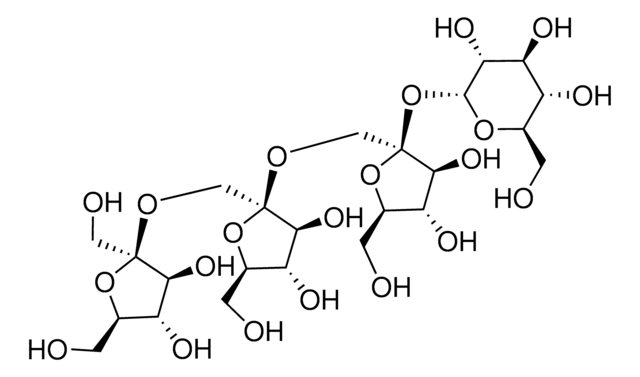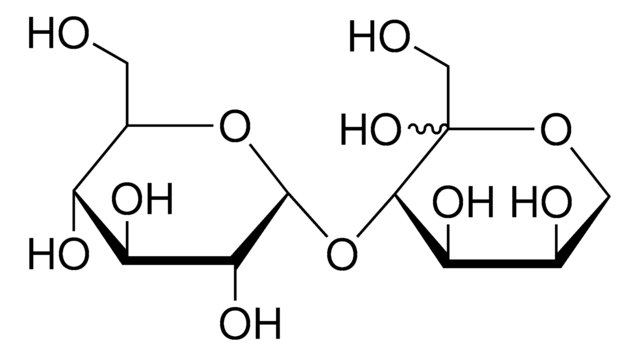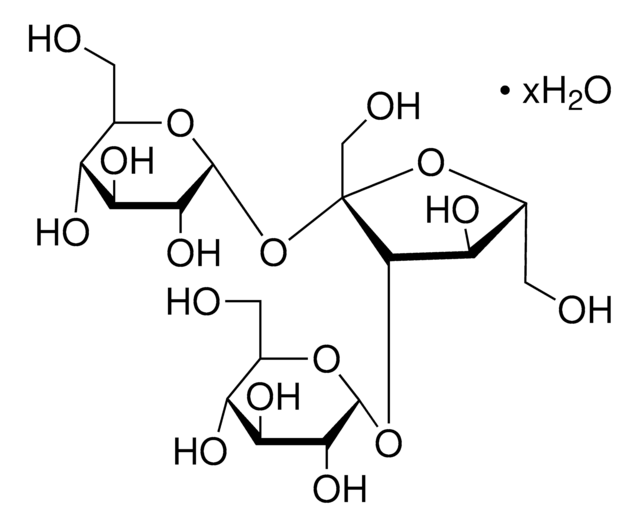72555
1-Kestose
analytical standard
Sinónimos:
β-D-Fruf-(2→1)-β-D-Fruf-(2→1)-α-D-Glup
About This Item
Productos recomendados
grade
analytical standard
Quality Level
assay
≥98.0% (HPLC)
analyte chemical class(es)
oligosaccharides
technique(s)
HPLC: suitable
gas chromatography (GC): suitable
application(s)
food and beverages
format
neat
storage temp.
2-8°C
SMILES string
OC[C@H]1O[C@H](O[C@]3(CO[C@]2(CO)O[C@H](CO)[C@@H](O)[C@@H]2O)O[C@H](CO)[C@@H](O)[C@@H]3O)[C@H](O)[C@@H](O)[C@@H]1O
InChI
1S/C18H32O16/c19-1-6-9(23)12(26)13(27)16(31-6)34-18(15(29)11(25)8(3-21)33-18)5-30-17(4-22)14(28)10(24)7(2-20)32-17/h6-16,19-29H,1-5H2/t6-,7-,8-,9-,10-,11-,12+,13-,14+,15+,16-,17-,18+/m1/s1
InChI key
VAWYEUIPHLMNNF-OESPXIITSA-N
Categorías relacionadas
General description
Application
Other Notes
Storage Class
11 - Combustible Solids
wgk_germany
WGK 3
flash_point_f
Not applicable
flash_point_c
Not applicable
ppe
Eyeshields, Gloves, type N95 (US)
Elija entre una de las versiones más recientes:
¿Ya tiene este producto?
Encuentre la documentación para los productos que ha comprado recientemente en la Biblioteca de documentos.
Los clientes también vieron
Nuestro equipo de científicos tiene experiencia en todas las áreas de investigación: Ciencias de la vida, Ciencia de los materiales, Síntesis química, Cromatografía, Analítica y muchas otras.
Póngase en contacto con el Servicio técnico










